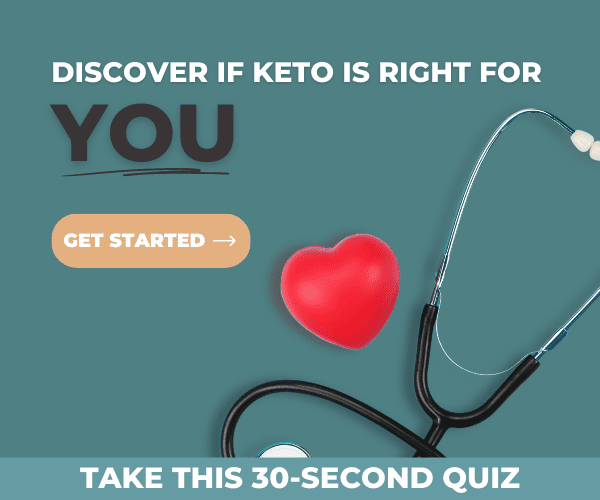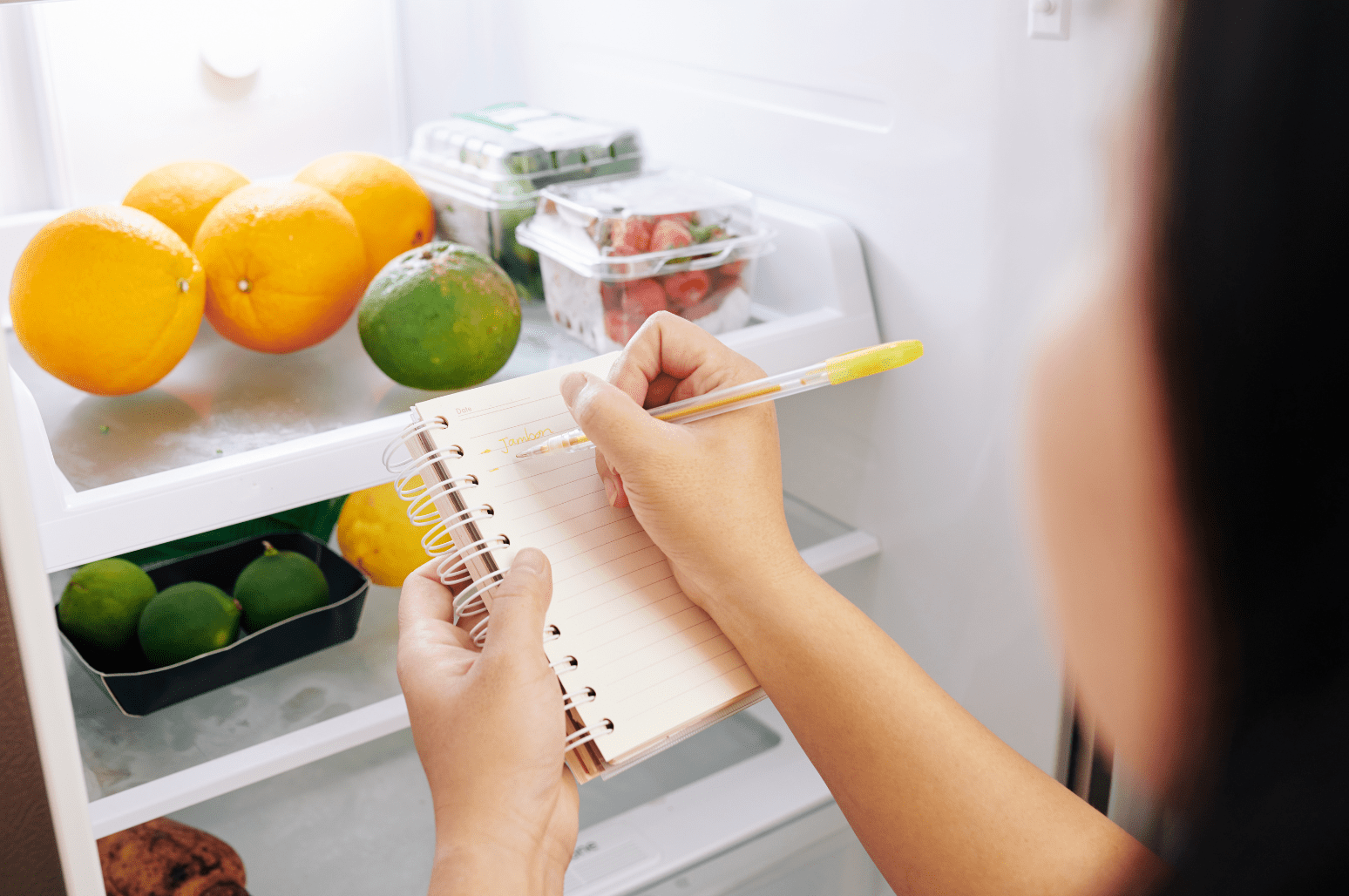
You’d be surprised how unhealthy some foods are that are usually billed as good for you, or, at worst neutral. There are lots of these deceptive foods, many of them commercially produced and sitting on your grocery store shelf, hiding sneaky hidden sugars, starches, or artificial additives.
Consuming a diet higher in processed sugar and carbs increases your risk for numerous chronic diseases and sets you on the path to insulin resistance and metabolic dysfunction. Eating something unhealthy once in a while may not be so problematic, but frequent consumption of these unhealthy foods could be harmful over time. People with certain chronic diseases and medical conditions may decide to limit or avoid unhealthy processed and sugar-loaded food products to improve their health and, if they’re following a keto lifestyle, to stay in ketosis. Read on to find out what foods you think are healthy actually aren’t.
Top Foods You Think Are Healthy But Aren’t
1. Gluten-Free Products
Gluten-free products may be free of gluten, but that doesn’t mean they’re good for you. Gluten-free products typically contain a range of starches, rice flour, added sugars, and additives that don’t provide nutritional benefits. Whether or not you’re avoiding gluten, it’s worth taking a closer look at these processed foods. The ketogenic, gluten-free recipes here at Ketogenic.com such as this keto flourless chocolate cake or these avocado brownies with peanut butter avoid added sugars and problematic additives.
2. Yogurts
Many commercially available yogurts are sugar-loaded. The fat-phobia craze led many food manufacturers to remove most of the fat and make low-fat yogurts. When the fat is removed, sugar, other sweeteners, and flavorings are usually added to replace the lost flavor. The result is worse for your health than simply eating a full-fat, no-sugar version. Especially if you are on a ketogenic diet, stick to Greek yogurts, sugar-free and full-fat yogurts. You’ll probably enjoy Ketogenic.com founder Dr. Ryan Lowery’s favorite protein-packed Greek yogurt.
The same goes for frozen yogurt. Even the ones that claim to be keto-friendly may not be the healthiest choice if they’re made with artificial dyes and sweeteners. Lots of keto dieters prefer to use more natural keto-friendly sweetener options that weren’t originally created in a laboratory, such as monk fruit and stevia. Top your yogurt with berries, nuts, and your preferred keto-compliant toppings.
3. Trail Mix
Even the name trail mix sounds healthy, as it brings visions of hiking on a picturesque trail as the sunlight peeks through the trees. Unfortunately, most trail mixes in the grocery store contain candy, artificial flavors and colors, and way too much sugar for ketosis. If you’re unsure, always check the label and be mindful of dried fruit and other ingredients that aren’t keto-friendly. Snack on this keto trail mix recipe instead, which uses sugar-free chocolate chips and sugar-free syrup for sweetness without hindering the metabolic benefits of ketosis.

4. Energy Drinks and Protein and Meal Replacement Bars
Many meal replacement bars and protein or snack bars aren’t much better than a sugar-packed candy bar. In fact, no matter how purportedly healthy a bar is, it is unlikely any meal replacement bar can be an adequate replacement for a balanced proper meal of natural whole foods.
People are under the impression that higher protein content means the food or beverage is healthier, but that’s not always the case when it comes to processed foods. Protein bars and shakes may not be as healthy as you think when they come with artificial sweeteners, colors, oils, and thickeners.
A fruit punch Gatorade energy drink has a whopping 34 grams of added sugar, which is a huge no-no on keto and could impede your fitness and weight loss goals. [1] A 16-ounce can of Monster energy drink has 54 grams of added sugar, which might be difficult for some keto dieters to wrap their heads around! You don’t have to be a low-carb advocate to realize this is way too much sugar. [2]
Researchers have associated drinking sweetened beverages with health problems, such as fatty liver, obesity, and high blood pressure in kids and adolescents. [3] [4] The energy you feel you obtain from an energy drink may not be the healthier choice due to the overuse of stimulants like caffeine.
5. Labeled ‘Sugar-Free’ and ‘Diet’
Products labeled ‘sugar-free’ or ‘diet’ often contain artificial sweeteners like aspartame (Equal® or NutraSweet®). Aspartame is 200 times sweeter than sugar, which may have adverse effects on metabolism and make you crave more and more sweet-tasting foods and sugar over time. [5]
Aspartame is frequently used to sweeten:
- Powdered drinks
- Frozen desserts
- Chewing gum
- Jello mixes and dried pudding
- Certain dairy products and breakfast cereals
- Diet soft drinks
- Dried dessert mixes
Many keto dieters prefer more natural sweetener options and sugar replacements like stevia and monk fruit.
Anti-aspartame activists claim there’s a link between aspartame and a number of ailments, including depression, attention deficit hyperactivity disorder (ADHD), cancer, weight gain, lupus, dizziness, and neurological problems. Studies are mixed, with some showing increased symptoms, disease acceleration, or risk and others reporting no negative outcomes with aspartame consumption. [6] [7] [8]
6. Labeled ‘Low-Fat’ or ‘Fat-Free’
If you’re on a keto diet, you’re certainly not avoiding fat; rather, you should be consuming sufficient healthy fat and protein from natural sources like avocado, meats, seafood, nuts, and seeds.
Surprisingly, low-fat and fat-free foods often contain more sugar and more calories. Remember, much of the flavor is lost when the fat is removed, so manufacturers turn to sugar or artificial additives instead. Low fat often means high carbohydrates, which can increase your triglycerides and lead to cholesterol problems. Less fat also means that the carbohydrates you consume affect your blood sugar more rapidly, causing it to spike. You risk feeling hungry, weak, and tired without enough fat and protein. [9]
7. Prepared Salads
You can certainly find prepared salads that are satiating, healthy, and low-carb. That being said, salads can be deceiving, and keto dieters may be fooled into thinking a restaurant salad is a perfect keto choice when it’s actually way too high in carbs.
For example, Panera Bread’s citrus Asian crunch salad with chicken may seem like a lower-carb option, but it clocks in at 38 grams of net carbs. [10] Even those not following a keto diet may find prepared salads to be surprisingly high in unnecessary sugar and even calories.
Be mindful of the sauces and carb count of restaurant-prepared salads. Try a salad and salad dressing recipe from Ketogenic.com:
- BLT keto salad with sesame mustard dressing
- Coconut lime dressing
- Broccoli salad
- Low-carb ranch dressing
- Southwest chicken mixed green salad with cilantro lime avocado dressing
- Fennel arugula salad with lemon vinaigrette
- Keto Caesar salad nests
8. Breakfast Cereal
Breakfast cereals usually aren’t the healthiest way to start your day because they’re made with refined grains, so they’re high in sugar and starch but usually low in fiber, protein, and nutrients. It’s difficult to obtain lasting energy if your morning begins with mostly starch and sugar that will cause your blood sugar to spike and later plummet. Honey Nut Cheerios is marketed as a heart-healthy choice, but one cup contains 12 grams of added sugar. Consuming excessive amounts of sugar definitely isn’t associated with heart health and could increase the risk of heart disease. [11]
Instead of traditional boxed cereals, crunch on a Ketogenic.com cereal recipe and continue to progress toward your goals.
9. Vegetable Oils and Margarine

Vegetable oils like canola oil aren’t as healthy as you might think. Read our detailed article for more info on why canola oil may be harmful to your health. Studies show canola oil may cause metabolic dysfunction and increase the risk of inflammation and oxidative stress. The manufacturing process of canola oil is complex and long and involves synthetic chemicals, leading health advocates to request more long-term studies and question the safety of these oils.
Critics of vegetable oils maintain that the traditional and more natural cold-pressed oils and rendered fats used by our great-grandparents or great-great-grandparents are still the optimal choices because they’re not genetically modified and don’t involve the use of chemicals and processes like hexane and high-heat. Unlike coconut oil and animal fats like butter, duck fat, and tallow, which are usually rendered and cold-pressed, these vegetable oils are derived from genetically modified grains, and the seeds don’t want to give up their fats easily, so they must be heavily processed with high heat.
Vegetable oils like canola oil also have higher amounts of omega-6 fats, offsetting the ratio of omega-3s to omega-6s. Check out our article for more information on the ratio and importance of the omega fats.
To make margarine, manufacturers use an additional process called hydrogenation, where they pump molecules of hydrogen into the canola oil to change the chemical structure, extend the shelf life, and allow the oil to become solid at room temperature. This processing creates artificial trans fats that aren’t like the natural fats present in butter, fish, and meat. Once again, the more natural alternative most people know and love–butter–is the better option.
10. Premade Smoothies and Juices
You already know that many fruit and vegetable juices are off the keto menu. While homemade smoothies have the potential to be keto-friendly and satiating, premade smoothies from most restaurant chains and grocery stores also aren’t keto-friendly due to their sugar content. Check the label if you’re unsure. However, there are ways to stay keto at Smoothie King and other restaurants and cafes.
Bring Smoothie King to your kitchen with these Ketogenic.com recipes:
References
Pepsi Co. The Facts About Your Favorite Foods and Beverages (U.S.): Gatorade Fruit Punch. The Facts About Your Favorite Foods and Beverages (U.S.) | product (pepsicoproductfacts.com)
United States Food and Drug Administration (FDA). Added Sugars on the New Nutrition Facts Label. Added Sugars on the New Nutrition Facts Label | FDA
Sekkarie, A., Welsh, J. A., Northstone, K., Stein, A. D., Ramakrishnan, U., & Vos, M. B. (2021). Associations between free sugar and sugary beverage intake in early childhood and adult NAFLD in a population-based UK cohort. Children (Basel), DOI: 10.3390/children8040290
DiStefano, J. K., & Shaibi, G. Q. (2021). The relationship between excessive dietary fructose consumption and pediatric fatty liver disease. Pediatr Obes, DOI: 10.1111/ijpo.12759
Center for Science in the Public Interest. Chemical Cuisine Ratings. Chemical Cuisine Ratings | Center for Science in the Public Interest (cspinet.org)
Lohner, S., Toews, I., & Meerpohl, J. J. (2007). Health outcomes of non-nutritive sweeteners: Analysis of the research landscape. Nutr J, DOI: 10.1186/s12937-017-0278-x
National cancer institute. Artificial Sweeteners and Cancer. Artificial Sweeteners and Cancer - NCI
American Cancer Society. Does Aspartame Cause Cancer? Does Aspartame Cause Cancer?
Nguyen, P. K., Lin, S., & Heidenreich, P. (2016). A systematic comparison of sugar content in low-fat vs regular versions of food. Nutr Diabetes, DOI: 10.1038/nutd.2015.43
Panera Bread. Citrus Asian Crunch Salad with Chicken. Citrus Asian Crunch Salad with Chicken | Panera Bread
Honey Nut Cheerios. Honey Nut Cheerios Ingredients. Honey Nut Cheerios | Gluten Free Oat Cereal | Cheerios









